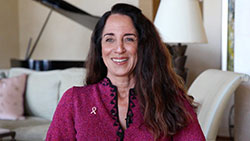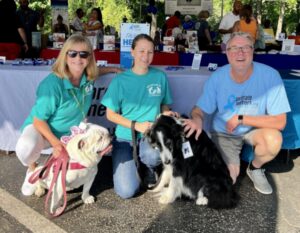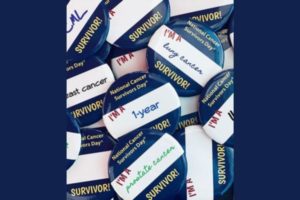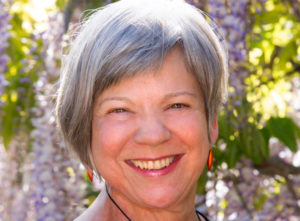[NCSD Guest Blog Post by Diana Raab, PhD]

Finding out about my breast cancer diagnosis at the age of forty-seven was absolutely devastating news. It was 2001, just months before the World Trade Centers tumbled to the ground, and everything was going extremely well in my life. I had a strong marriage and three beautiful children. My writing career was taking off and I had much to live for.
After my gynecologist phoned with the news, I placed the telephone down, and sat down on the sofa in my office which I’d often used to contemplate creative ideas. I stared blankly into space. My daughter, Regine, came into the room, and gently sat beside me. She placed her arm around me, and the first thing she said was, “Mom, you always told me to turn negatives into positives, so I’m thinking there must be a book in all of this.” At the age of sixteen, I found her wise way beyond her years.
Although writing a book sounded momentarily appealing, I could not wrap my mind around the idea of cancer growing inside of me. In a short time, I’d have to have a breast removed—the part of me that nursed three babies and the part of me which signified my womanhood.
Despite a loving and supportive family, the turmoil, fear and uncertainty of those times was unrelenting. Thankfully, an early diagnosis and my passion for journaling saved me. I felt blessed to be able to share my sentiments creatively through writing.
As a nurse and writer, I teach journaling and believe that it’s a critical component for healing. With my breast cancer journaling, my entries eventually evolved into a self-help memoir called Healing With Words: A Writer’s Cancer Story, and my hope was to help others navigating similar journeys.
People called me a woman warrior because I paved the path for their own healing by inspiring them to think positively and write about their journey.
For those of us who are survivors, even though incisions heal and we get back to our routine, the emotional and physical scars of having had breast cancer remain for the rest of our life. For example, filling out medical forms asking about cancer, we’re once again reminded of the journey.
My passion for journaling began during my childhood when my mother gave me a Khalil Gibran journal to help me cope with the loss of my maternal grandmother and caretaker who died in my childhood home. Since then I have used writing to help me heal. My mission is now to share my passion and teach others to do the same. In fact, my doctorate research was about writing memoirs for healing and transformation.
Here are some ideas I’ve shared in my book and in my writing workshops to help start the writing process:
• Find a quiet uninterrupted time and place to write.
• Choose an inspiring notebook and pen.
• Use a centering ritual (light a candle, play music, meditate, stretch).
• Take a deep breath.
• Put aside your inner critic.
• Date your entry.
• Begin by writing your feelings and sensations.
• Write nonstop, starting with 15-20 minutes at a time.
• Save all that you’ve written.
• Schedule regular writing time.
In essence, there’s no way around it. It’s simply not easy being a woman. There are many concerns, issues, decisions, hurdles, and milestones, but there are also many high points and it’s important that we remember to celebrate those!
Diana Raab, MFA, PhD, is a memoirist, poet, blogger, speaker, and award-winning author of ten books. Her work has been published and anthologized in over 1000 publications. She frequently speaks and writes about writing for healing and transformation. Her latest books are Writing for Bliss: A Seven-Step Program for Telling Your Story and Transforming Your Life and Writing for Bliss: A Companion Journal. She teaches memoir writing on DailyOM and in private groups. Her website is dianaraab.com.




